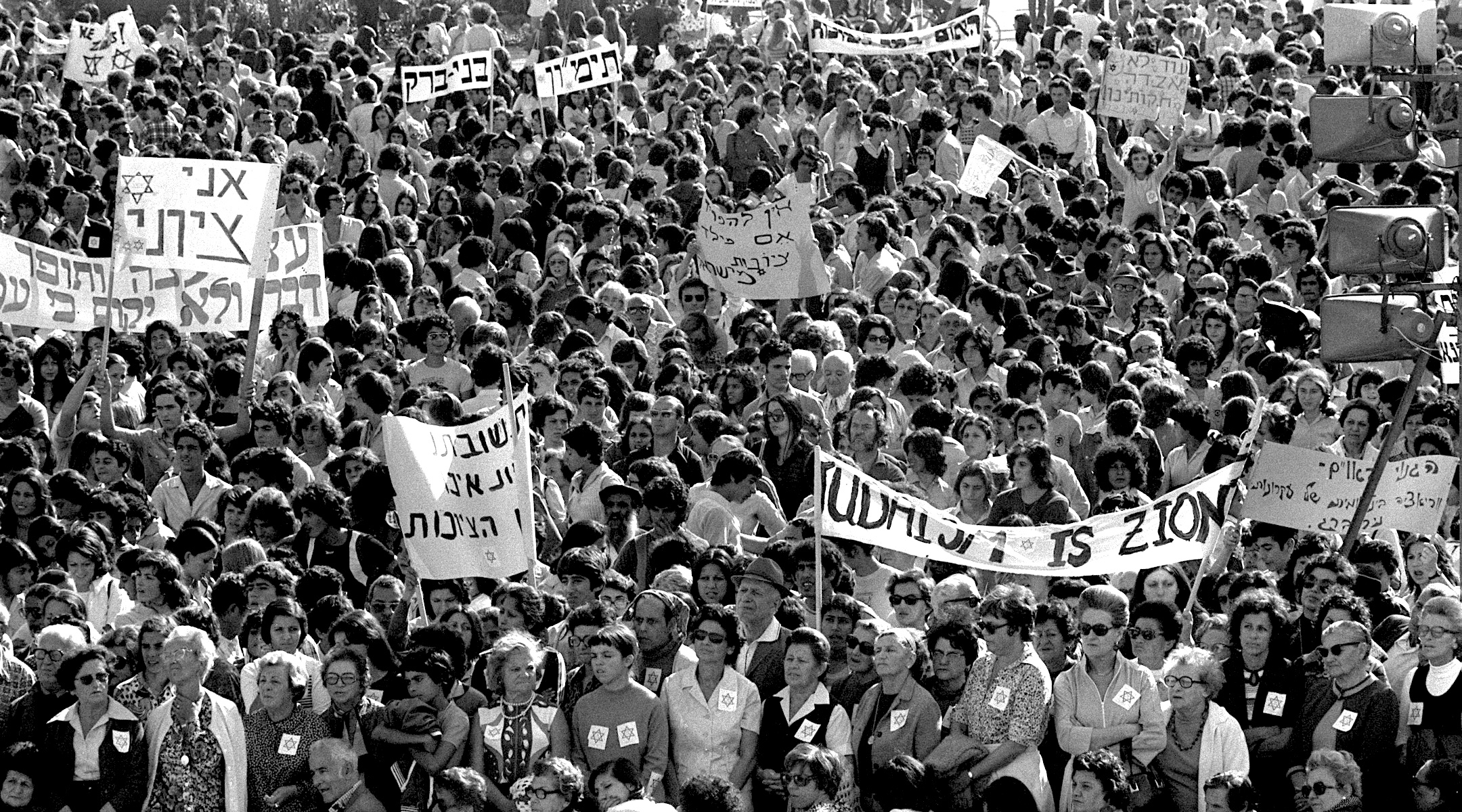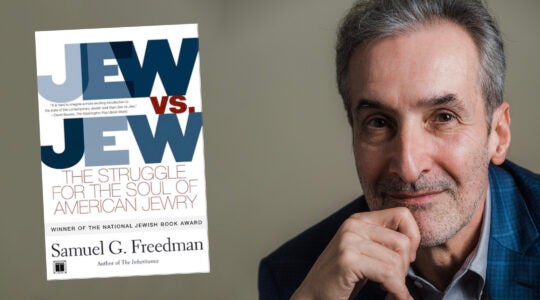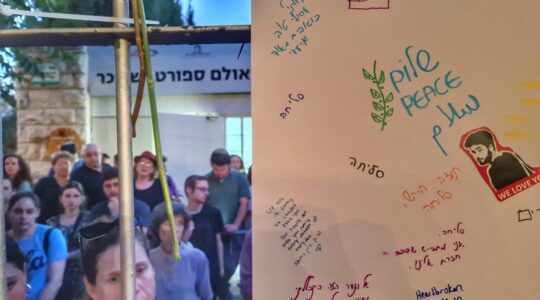In the face of campus attacks on “Zionists” and a global backlash against the very ideology of “Zionism,” there have been calls to retire the word Zionism. The latest came from Case Western Reserve university professors Alanna Cooper and Sharona Hoffman, who argue that because Israel’s enemies use the word to avoid saying ”Israel,” and distort the historical meaning of the word, the terms “Zionism” and “Zionist” “should be retired from our vocabulary.”
This would be a mistake of epic proportions. It won’t make our enemies love us. In fact, it will have the opposite effect and just embolden them to keep chipping away at our narrative, our heritage and our people. So, we must double down on that word, reclaim it, and remind everyone what it really means.
And here’s what it means (the Anti-Defamation League got it right): “Zionism is the movement for the self-determination and statehood for the Jewish people in their ancestral homeland, the land of Israel.” That’s it. Nothing more and nothing less.
Calling for retiring the word Zionism, even in the interest of defending Israel, is a short-sighted response that will only backfire. The word is not only still relevant today, but it represents something vitally needed for world Jewry at this hour: Jewish pride. So instead of giving in, we must push back and reclaim the terminology. We must be proud and show them that we won’t bow to their pressure on this or any other antisemitic attack, and here’s why:
First, words matter. Our enemies have long used language to stoke Jew hatred. From passion plays that proclaimed Jews killed Jesus to blood libels that claimed Jews drink the blood of Christian children to Hamas lies that Israelis harvest Palestinian organs to anti-Israel protesters screaming that Israel commits genocide and apartheid — our enemies have always used words to inflame hatred against us, and it has often led to real violence. They’re doing the same thing today by turning the word Zionism into a bad word. But we cannot let them.
Related: For the sake of Israel, it’s time to retire the word ‘Zionism’
Second, we get to define our own lexicon, not our adversaries. Cooper and Hoffman write that Jewish Voice for Peace, the United Nations and others have chosen to give Zionism “pernicious meanings.” So what? We are already starting to lose the nomenclature fight when it comes to defining antisemitism because we are letting our enemies tell us what Jew hatred is and what it is not. Why do we think caving to our adversaries is ever the right strategy? Winston Churchill famously said, “An appeaser is one who feeds a crocodile hoping it will eat him last.”
Third, it’s a slippery slope. What’s next? Jew haters will go back to the UN to attempt once again to define “Zionism as racism” — an argument the American Jewish community and government officials spent 16 years fighting to repeal — and then where will they then go from there? Will they try to turn the word “Israel” or “Jewish” into bad words too? In 1975, Daniel Patrick Moynihan, the U.S. ambassador to the U.N., called the effort to sully the word Zionism “a great evil has been loosed upon the world.” A half-century later, surely the Jewish people can say the same thing.
Fourth, the attack on the word Zionism is something more nefarious in disguise: It is our enemies’ attempt to erase the Jewish connection to Zion altogether. Hoffman and Cooper write that “Zionism should continue to be used to refer to the movement that predated the establishment of Israel in 1948.” But if we allow our enemies to turn Zionism into a dirty word, then that will pave the way for them to turn the entire Zionist enterprise into a dirty movement, which will pave the way for them to discredit not just the word Zionism, but the whole Zionist project, meaning the State of Israel itself. If we retire “Zionism,” with all of its deep historical resonance, it will only embolden them to keep lying about the lack of Jewish connection to the land of our people.
Ultimately, we must stand up to our adversaries. We cannot bow to their pressure. We must show them that we are proud of our heritage, our people, and our language — including the word Zionism. For only pride will defeat antisemitism. By giving in to this self-defeating, antisemitic attempt to steal our language from us, we are doing the opposite of having pride – we are going back to being the weak Diaspora Jews that the founders of Zionism were pushing back against when they called for the creation of the modern Jewish State.
Related: What we talk about when we talk about ‘Zionism’: A roundtable
Today, a strong, defiant, self-sufficient Judaism is needed more than ever — and that type of Judaism is best represented by Zionism. As I’ve written before, “Zionism is the belief that Jews hold the keys to our own destiny and determine our own future. We are no longer victims of history; we write our own history. Zionism is not just self-determination for Jews in our homeland but self-actualization for Jews all over the world. That’s the Zionism of today, modern Zionism, Zionism 3.0.”
In the end, not only must the word Zionism not be retired, but the word and the ideal it embodies must be resurrected, rejuvenated and rebooted. A strong, courageous, self-determining Zionism both in Israel and in the Diaspora is a Zionism with fighting for. That’s what Israeli soldiers are fighting for. That’s what proud Jewish kids on campus are fighting for. That’s what Jews around the world are fighting for.
It’s time to double down and take back the word Zionism.
JTA has documented Jewish history in real-time for over a century. Keep our journalism strong by joining us in supporting independent, award-winning reporting.







